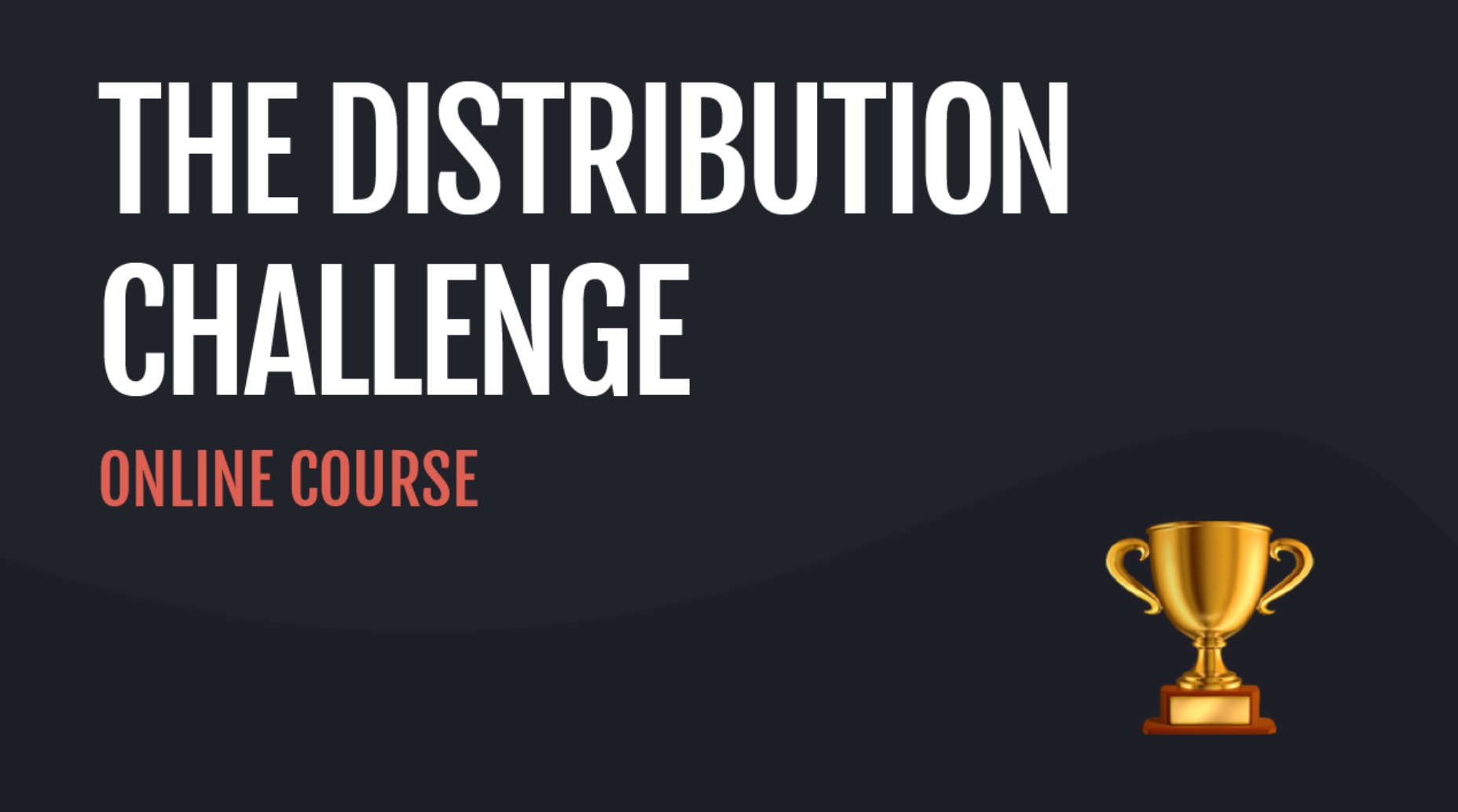Article's Content
Welcome to Volume 52!
Hopefully, you’re having a great week and were able to make it through the chaos of Facebook, Instagram, and other social media apps going down in unison.
To be honest, I really love those days when something innocent unites the entire online world. It almost feels like a snow day that everyone can be a part of.
However, those outages highlight how important it is to diversify your promotion map and distribution engine. Especially if your brand relies on a single social media channel to drive traffic and revenue.
A famous marketer once said, don’t build your content house on rented land. And I think this week was a perfect illustration of that idea.
Before we get into the rest of the news, here’s a peek at what’s to come:
We have just opened the waiting list for our newest course, the Distribution Challenge by Ross Simmonds!
4 Day Work Weeks?
A few weeks ago a fintech startup called Bolt announced that they were moving to a four day work week.
It got people talking all over the tech world and led to features in Fast Company, Forbes, and more!
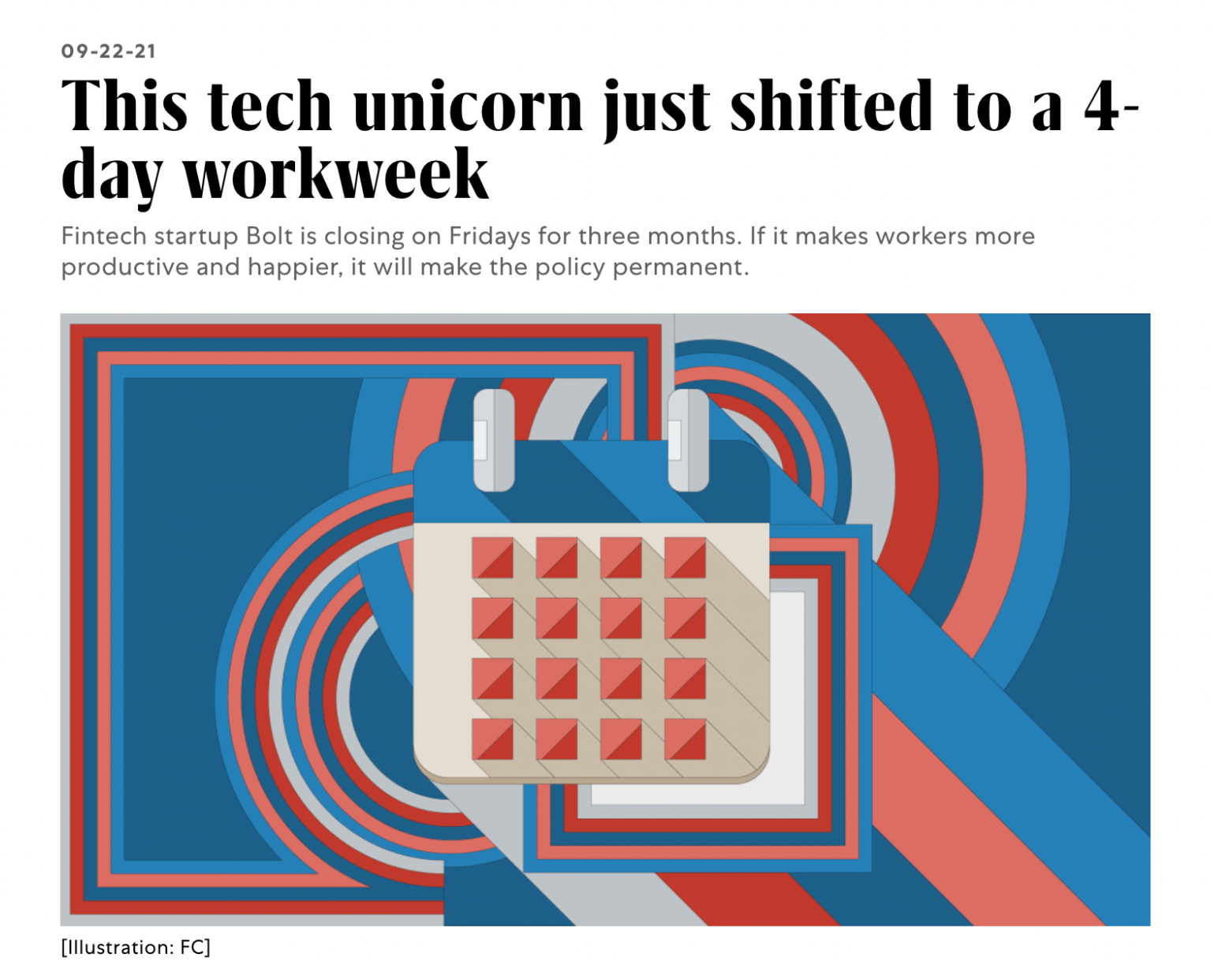
I’m already a fan of Bolt, mostly from their amazing merch drops, but this makes me like them even more! Sometimes all it takes is one big brand to make a statement like this, and others will be comfortable in following.
Each Friday for the next three months, Bolt is asking its employees to sign off and take some time to rest. They are even recommending that their employees set out-of-office messages to make it easier to unplug for the weekend. This is one of the first steps that they are taking to build what they are calling “Conscious Culture.”
According to the team at Bolt, a four day work week will lead to:
- Better Work/Life balance
- Increased productivity
- Recruiting & retaining more employees
- Less environmental impact
All of these claims are backed up by some pretty impressive data and findings, so I can see all of these goals being achieved.
When a New Zealand company called Perpetual Guardian implemented a four-day workweek in 2018 it led to a 24% increase in Work/Life balance.
A 2021 report from the UK found that if the whole country moved to a four-day workweek, they could reduce their carbon footprint by 21.3%!
Microsoft Japan reported that they saw a 40% increase in productivity when they moved to a four-day workweek. They also said that overall meeting time and performative labor decreased significantly as well.
The founder of Bolt, Ryan Breslow, stated:
“Here’s what many of us know but can be tough to admit: Work will fill the space you give to it. My bet is that we’re going to become vastly more efficient from Monday to Thursday. We’ll trim those excess meetings; we won’t send unnecessary communications. Because we’ll have less time, we’ll get more concrete work done.”
Now if you want to follow some of Bolt’s other workplace experiments, check out their new publication called Concious.org!
Key Takeaways
- Bolt is testing a four-day work week for the next 3 months.
- They are trying to build a Conscious Culture internally, but also sharing their findings with the world.
- A four-day workweek has historically led to a 24% increase in Work/Life balance, 40% increase in productivity, and a lot more benefits!
Facebook Goes Down, Hard
We are probably not the first outlet to tell you that Facebook, Instagram, and Whatsapp went down for most of Monday. Other social media apps including Twitter and Snapchat also saw interruptions throughout the day.
If you have built your distribution channels on any of these platforms, you might have been a little riled up or even a bit fearful.
Some experts claimed that during the outage, Facebook lost around +$60M in ad revenue. That doesn’t just impact Facebook’s bottom line, but every brand that uses Facebook or Instagram ads.
FB Quarterly Rev: 29.08B
FB Monthly Rev: 9.69B
FB Daily Rev: 323M
FB Hourly Rev: 13.46MCurrent down time ~4:30 and counting
$58M lost… so far.
Is that more or less than the Shopify GMV loss? pic.twitter.com/Zl7VNEBK8S
— Taylor Holiday (@TaylorHoliday) October 4, 2021
While others pointed out that this wasn’t even the first, or tenth, time that Facebook, Instagram, or other social networks went down this year.
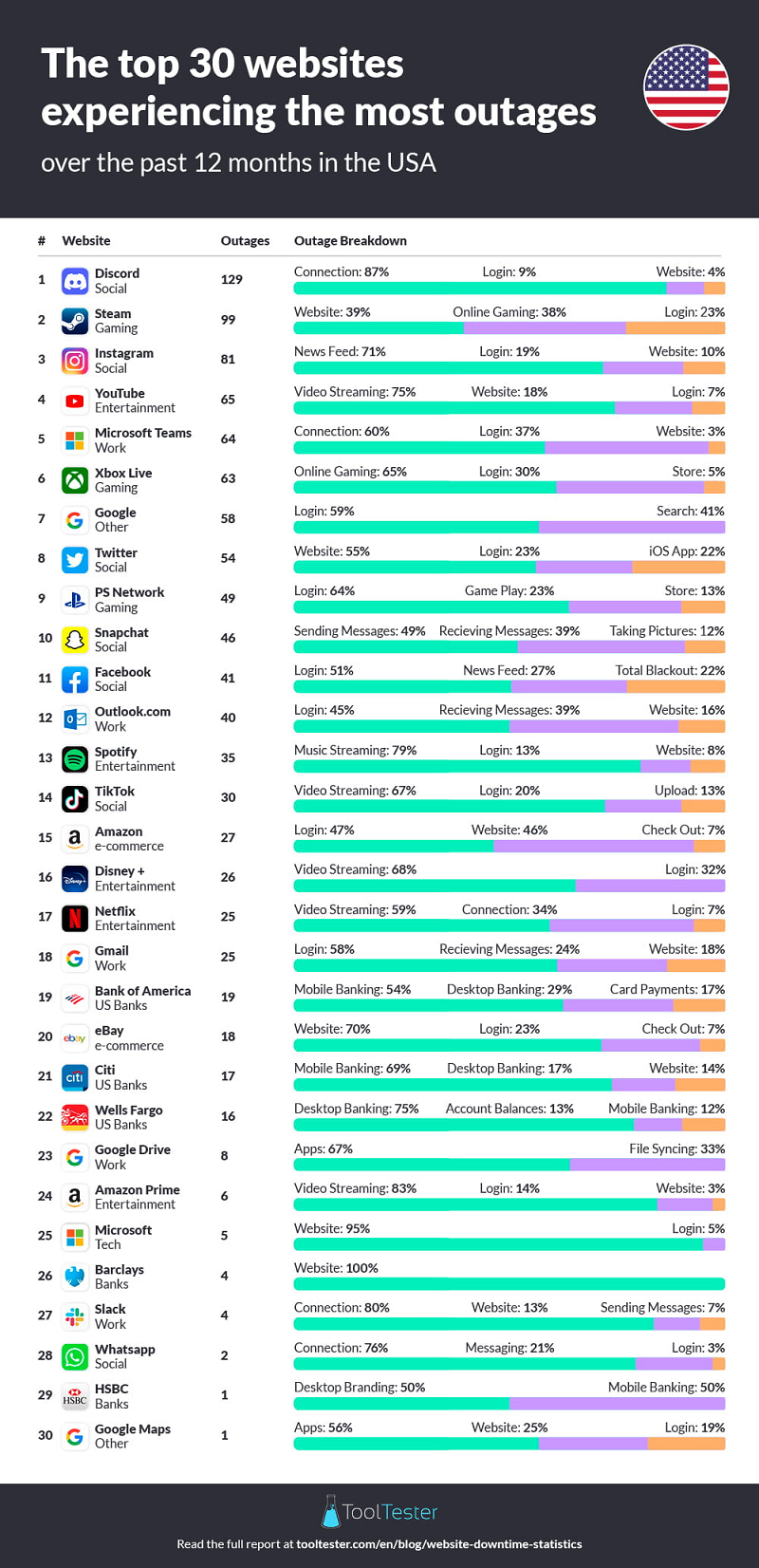
It’s almost a given that Facebook, Instagram, or Twitter will experience an outage each month. With some lasting a few minutes, and others lasting an entire day. No matter the length of these outages, they can seriously impact your business and marketing plans.
The frequency of these outages got me thinking about how important it is to diversify your distribution channels.
You don’t have to be on EVERY channel, like Ross Simmonds, but you should strive to have more than one channel that drives traffic, revenue, or new leads to your content.
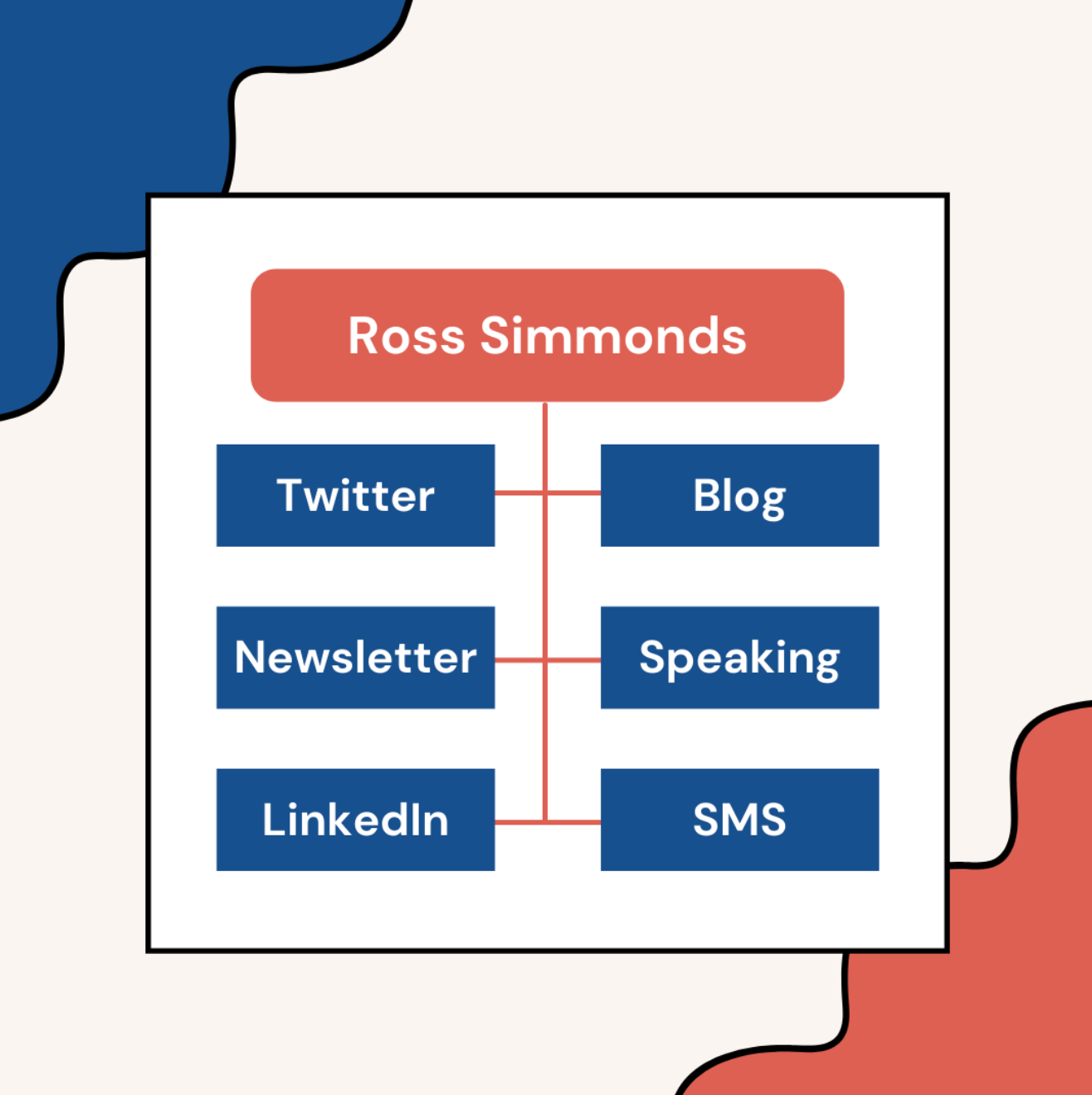
For example, a B2B marketer might only need to be active on LinkedIn, Twitter and have a newsletter or blog. But a designer should be active on Pinterest, Instagram and build out a following on Behance or a newsletter.
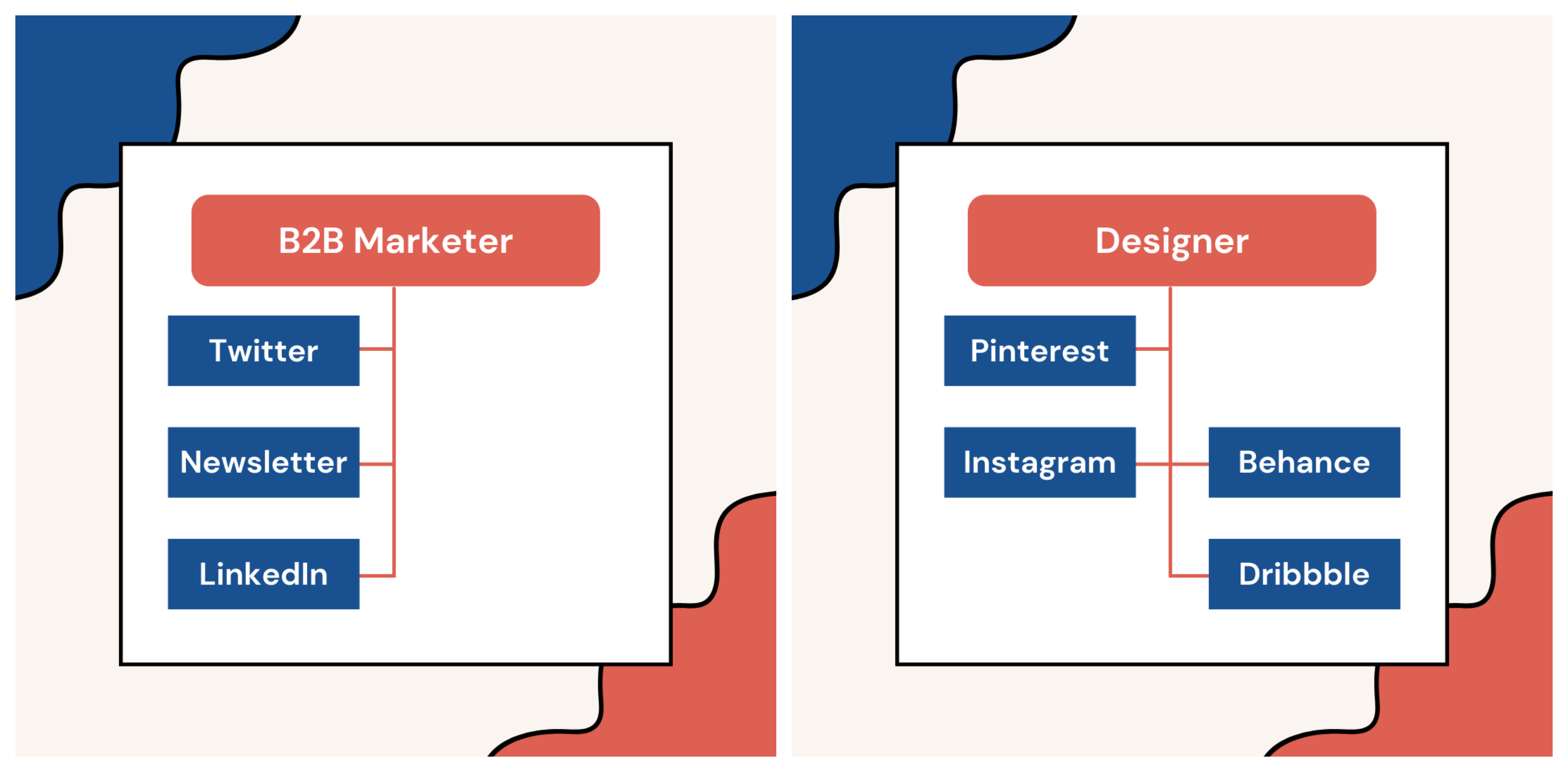
You might have seen that we mentioned both creators should have a newsletter above. That wasn’t an accident.
An email newsletter is one of the most powerful distribution channels you can have. It’s a direct link to your audience, free and you always can control the message.
At the end of the day, you really should be using all your other channels to drive email subscribers. You can then promote content directly to those people, sell them on courses, invite them to events, and more.
Now if you need help building out your content distribution engine, be sure to sign up for our newest course from Ross and the Foundation Marketing team:
The Distribution Challenge is a 12-part course designed to help creators and marketers get more reach and better results from the content you’ve already created led by the King of Distribution himself, Ross Simmonds.
Key Takeaways
- Facebook, Instagram, and other social media networks went down on Monday.
- It’s extremely important to diversify your distribution channels, especially now.
- An email newsletter is one of the most powerful distribution channels you can have.
Twitter For Professionals
Last week Twitter announced the launch of Twitter for Professionals to the world.
Based on the name of this new product, you would probably assume that it was built to compete with LinkedIn. I think a lot of people assumed that was the case as well, with many on social media making the comparison.
You would be wrong though!
At its core, Twitter for Professionals is a way for creators, publishers, nonprofits, businesses, and more to highlight content or information on their profiles. As well as give those users access to more features and promotional tools.
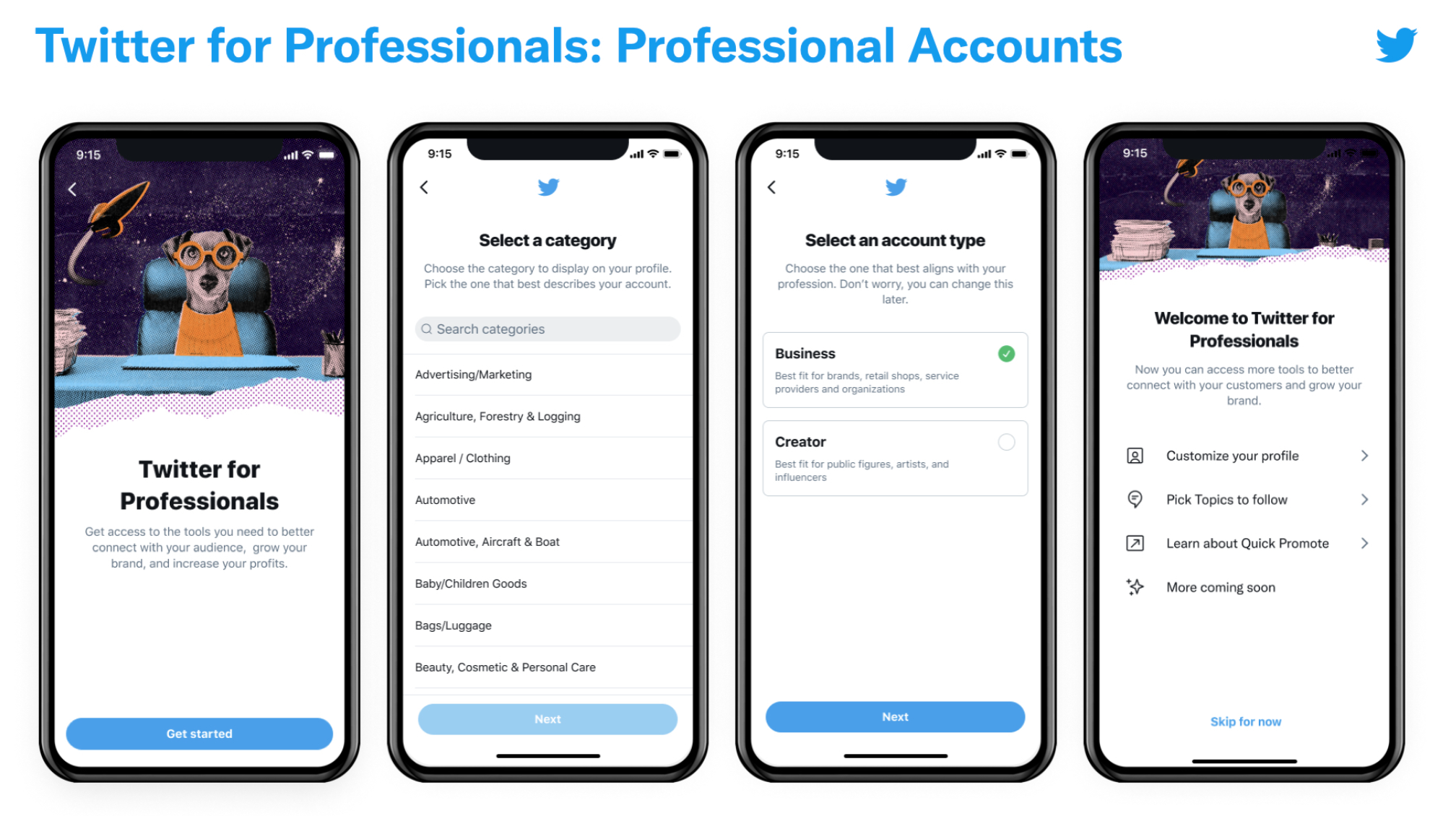
According to Twitter, they are going to be offering different modules that allow creators to highlight what is most important to them directly on their profile.
It’s almost like being able to add a Featured Snippet to the top of your profile, or a supercharged Pinned Tweet.
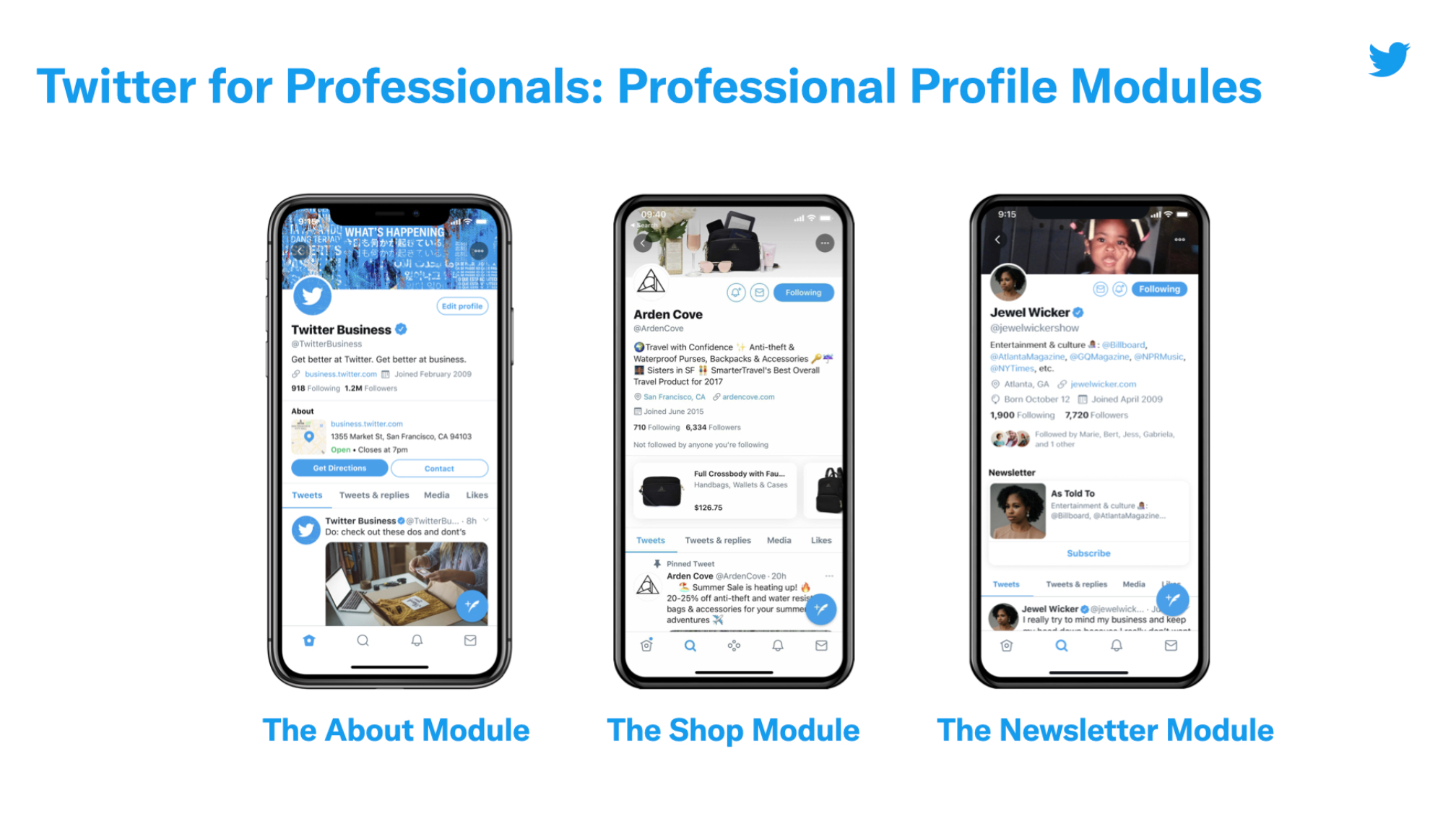
As you can see in the image above, those include the About, Shop, and Newsletter Modules. Some of these modules have been seen in the wild throughout the last year, like the Newsletter Module. But now Twitter has opened them up to all Professional Accounts.
By upgrading your account, for free, to a Professional Account, you also get access to a ton of features that normal users don’t have as well.
One of the features that excite me the most is Quick Promote! From my understanding, this allows brands to quickly promote a tweet or piece of content to more people, without setting up a full ad campaign.
This should help Twitter expand its ad revenue and help smaller creators get their content in front of more people!
If you would like to sign-up for a Professional Account, check out this application. Right now it’s only open to US users, but they plan to expand it soon.
Key Takeaways
- Twitter for Professionals launched for select US users last week.
- Professional Profiles will allow users to add About, Shop, and Newsletter Modules to their profiles.
- Professional users will also be able to use new features like Quick Promote and more.
OTHER NEWS OF THE WEEK:
❌ Zoom has abandoned its acquisition of Five9 due to many overlapping factors.
🗣️ The Facebook whistleblower behind the Wall Street Journal investigations has come forward.
📹 Instagram has eliminated IGTV and merged its many video products in an attempt to take on TikTok.
BRAIN FOOD OF THE WEEK:
A blank page can be one of the most intimidating sights for any content creator. I know that starting something new from scratch was always a struggle in my early days.
That’s why I rely so heavily on templates.
I have templates for different types of Twitter threads built inside a Google Sheet. A template for our teardown pitches. A template and checklist for our publication process. A template for our LinkedIn side decks. And more! If we are creating it at Foundation, I probably have a template for that type of content.
Just because you’re creating something new, that doesn’t mean you have to start from nothing.
These templates also make it a lot easier for other people to start creating similar content, which saves you time and effort in the long run.
Remember that even if your template only has a few bullet points, it’s a lot better place to start than a blank page.
TWITTER THREAD OF THE WEEK:
How Slack Kickstarted Growth With Non-traditional Marketing Tactics – @FoundationIncCo
WHAT WE’RE WIRED INTO THIS WEEK 🎧:
In Bloom by The Good Husbands
These round-ups are brought to you by me, Ryan M.
Stay up to date with all of our latest findings by subscribing to our newsletter today. Signing up also gives you early access to Ross’ Tuesday essay full of exclusive industry insights.
Quick, do it now before the next drop!







